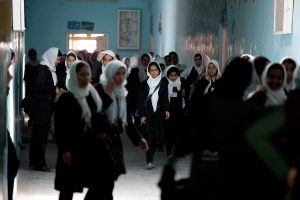Establishing Special Courts
Lessons from Reformers
This case study is part of the OGP Justice Policy Series, Part I: Access to Justice.
Specialized courts can provide greater access to justiceAccessible justice systems – both formal and informal – ensure that individuals and communities with legal needs know where to go for help, obtain the help they need, and move through a system tha... More and transparencyAccording to OGP’s Articles of Governance, transparency occurs when “government-held information (including on activities and decisions) is open, comprehensive, timely, freely available to the pub... More for individuals with legal problems. They might enable a court to specialize in a particular area of the law–like domestic violence–or set out alternative processes to more expeditiously and fairly resolve legal problems–like problem-solving courts. Some OGP countries have pursued commitments related to establishing specialized courts and notably these commitments were created with leaders from across the justiceTo address barriers that prevent citizens from having their justice needs met, OGP participating governments are working to expand transparency, accountability, and inclusion into all systems of justi... sector, including the judiciaryWhile a majority of open government reforms occur within the executive branch, OGP members are increasingly taking on commitments to increase the openness of the judicial branch. Technical specificati..., executive branch, and civil society.
For example, in 2017, Afghanistan proposed a commitment led by its Supreme Court to establish violence against women special courts in twelve provinces in collaboration with civil society. These courts will increase the number of existing violence against women special courts and take a gender- and victim-sensitive approach in these court proceedings. This includes employing female judges to preside over these courts and working with civil society organizations and the Ministry of Women’s Affairs to ensure that women accessing the court have the services they need. The Supreme Court also committed to hold trainings on these special courts to ensure that other parts of the justice system–and subsequently the public–are aware of these services. Importantly, the Supreme Court also pledged to support these courts through its budget and funding obtained from international donor agencies.
Bulgaria offers another example of such a commitment. In 2014, Bulgaria committed to develop a process to establish problem-solving courts, a court model developed in the United States that serves particular categories of issues or specific groups of people. In particular, Bulgaria committed to exploring such courts for two categories of individuals: children and people with disabilities.
Photo by: Graham Crouch / World Bank
No comments yet
Related Content

Global Report
The promise of democracy is often defined by the ballot box, where citizens determine who will represent their interests in government. That promise, however, too often fails to translate to…
Justice Policy Series, Part I: Access to Justice


Leave a Reply